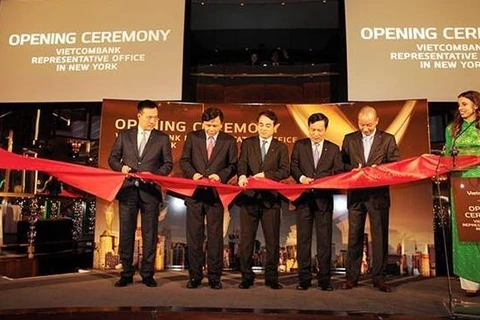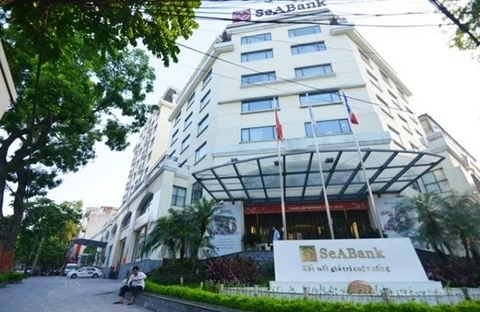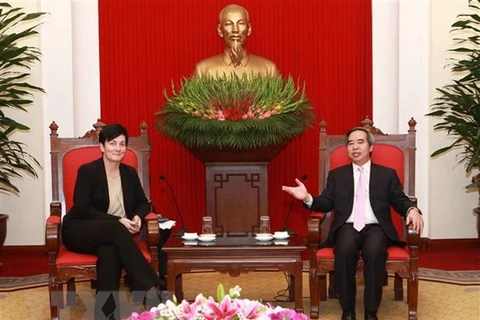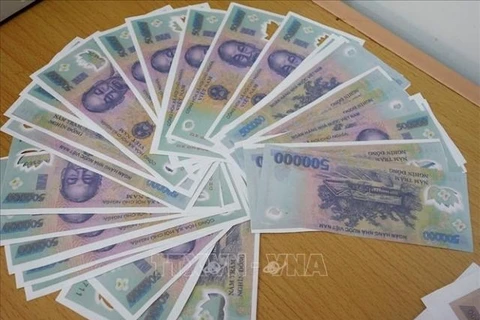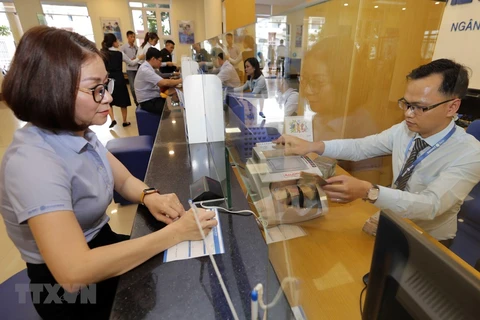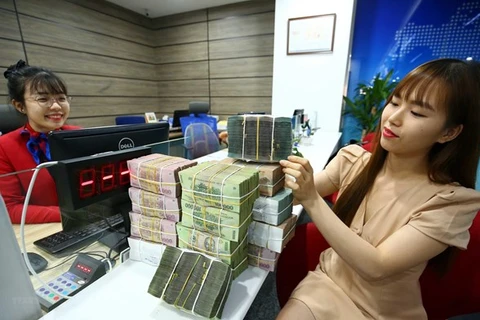Hanoi (VNA) - A number of credit institutions exceeded the credit growth over the level permitted by the State Bank of Viet Nam, violating the regulations on capital contribution and share purchase limits. In addition, the capital adequacy ratio of the whole system as assessed is not reliable.
This is the content in "Audit results of financial statements, activities related to the management and use of state capital and assets in 2017 of the State Bank of Vietnam and 7 financial institutions and banks, insurers" which has just been released by the State Audit of Viet Nam.
Violation of capital contribution and share purchase limits
According to the assessment, the central bank’s management of monetary policy and banking activities in 2017 contributed to the completion of the socio-economic development plan and monetary policy goals.
The results show that financial institutions and banks have achieved safety criteria in their business operations and made profits. For example, profit before tax of the Viet Nam Bank for Agriculture and Rural Development (or Agribank) is more than 4,528 billion dong, Bao Minh Joint Stock Corporation is over 197 billion dong.
However, the State Audit Office of Viet Nam showed a series of joint stock commercial banks: Bao Viet, Dong Nam A, Nam A, Viet Nam Thuong Tin with total outstanding loans in excess of 6,988 billion dong.
There is a situation of violating the regulations on capital contribution, share purchase. For example, Saigon Thuong Tin Commercial Joint Stock Bank and Kien Long own shares of each other. In addition, 5 credit institutions (Vietnam Maritime, Vietcombank, Vietnam Construction Bank, Ocean Bank and Agribank) hold shares of more than 2 other credit institutions.
In addition, according to the assessment, the State Bank of Viet Nam has not developed a roadmap to reduce the proportion of cash to less than 10 per cent of the total means of payment under the Project on developing non-cash payment in Viet Nam for the 2016-2020 period. Specifically, in the period of 2011 to 2017, the ratio of cash/total means of payment was nearly 12 per cent.
Capital adequacy ratio (CAR) of the system is not reliable, according to the under the State Audit of Viet Nam. The agency pointed out that excluding weak banks and banks bought by the State Bank of Viet Nam, some commercial banks invest in bank bonds, making "virtual improvement" in their capital adequacy ratio (CAR).
Inefficient financial investment
Also according to the audit results, some units have not completely dealt with outstanding debts for many years. For example, in Bao Minh, overdue debt insurance premium of more than 3 years is 137 billion VND. At Vinare, receivables in 1999, 2005, 2008 have no known cause, do not have enough records, amounted to VND 8.4 billion.
Financial investments are assessed to be ineffective or to have low inefficiency.
Agribank also has another investment of 47 billion dong in Viet Nam Construction Bank, which was bought by the State Bank for 0 dong.
The State Audit of Viet Nam also pointed out inappropriate and inaccurate accounting of revenue, income and expenses. For example, Bao Minh has not recorded timely revenue of insurance policies that have incurred liability of 20.3 billion VND and made improper compensation of 2.6 billion VND.
In particular, the audit agency stated that the Social Policy Bank has written off 95.37 billion dong in debt for 9,187 customers considered missing under the confirmation of the communal People's Committee and police forces is inappropriate./.

